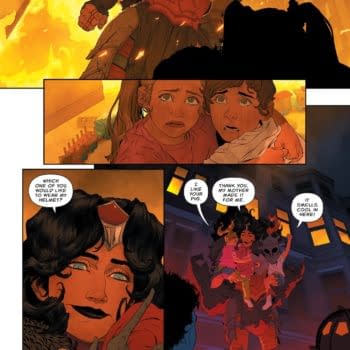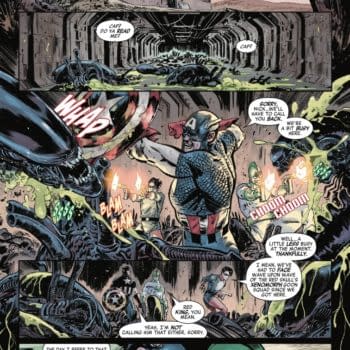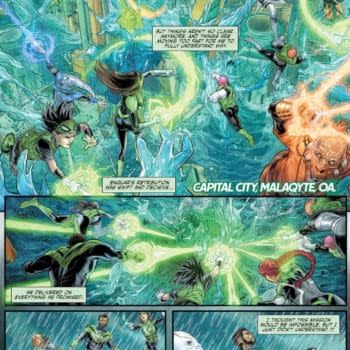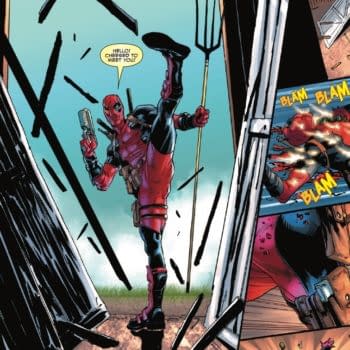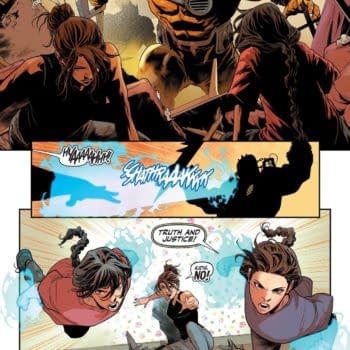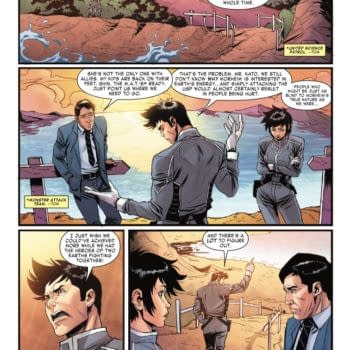Posted in: Comics | Tagged: Battle for Azeroth, blizzard, Blizzard Entertainment, Comiccraft, Matt Burns, Squling, world of warcraft, World of Warcraft: The Speaker
Blizzard Reveals First Pages from the World of Warcraft Comic, Plus a Writer Q&A
Blizzard Entertainment has released a glimpse at some of the early pages of the World of Warcraft comic, alongside a pre-prepared Q&A with writer Matt Burns. The comic, called The Speaker, is a 10-page short that explores the dwarven king Magni Bronzebeard's role in the events coming to WoW in the near future.
Matt Burns is a Senior Writer at Blizzard Entertainment's story and franchise development department, so he's worked to help expand on the fictional universes of Blizzard games before. The comic Burns is currently working on is designed to support World of Warcraft's upcoming Battle for Azeroth expansion.
And if you need any insight into the man's personality, well, Burns's bio reads:
Matt studied film at Chapman University. When he's not telling Blizzard tales, Matt enjoys playing games, reading comics and novels, watching movies, and searching for the perfect bowl of miso ramen.
The comic also boasts Suqling as artist and Comicraft as letterer.
The four pages are an exclusive for Bleeding Cool, as we are the only outlet to get the English-language assets. You can check out the cover, credits page, and first two pages of the comic below.
In the attached Q&A, Burns discusses the story process he uses to come up with his video-game adjacent content, as well as some background on Magni if you aren't familiar with him. While it is pre-prepared and so got run through the usual PR hoops, the insights into Burns's craft and the overall connection to Battle for Azeroth is something any WoW fan would find interesting.
The following comes straight from Blizzard:
There are a ton of characters in Battle for Azeroth that you could have focused on in this series of comics. How did the team decide on Magni as one of them?
Matt: We always start by sitting down with the game team and talking it through. We'll end up with a big list of characters, then whittle it down bit by bit. Some of the ones we focused on, like Jaina, were somewhat obvious given where the story is going. Magni was always on that list, too, because of his connection with Azeroth—the titan spirit that lives in inside of Azeroth. He can talk to her, and she can talk to him. Given how crucial this aspect of Azeroth is to the expansion's story, we were eager to explore Magni's relationship with her. It's a way to make what Azeroth is feeling more relatable to the audience. Magni was always on our list for that reason.
For those unfamiliar with Magni's history, how did he end up as the Speaker for Azeroth?
Matt: Magni was once the king of Ironforge. Years ago, prior to the events of Cataclysm, Deathwing was preparing to bust out of Deepholm and rampage across the world. At the same time, the world's elementals started going crazy—earthquakes and storms were raging uncontrolled, and no one knew what was happening. Magni wanted to understand the cause and figure out how to stop it. He was afraid for his people. So he underwent this ritual to commune with Azeroth—to become one with Azeroth. Everyone around him assumed that was metaphorical, but the ritual literally turned him into a crystal statue. It was a big shock.
Since he was the king, that led to a lot of chaos in Ironforge. It nearly led to a civil war, but it all worked out in the end. The three groups vying for power established the Council of Three Hammers to share rule, led by Magni's daughter's Moira, his brother Muradin, and Falstad, the head of the Wildhammer clan. Eventually, Magni awakened—still in crystal form—but rather than reassume leadership, he set out on a journey in service of Azeroth herself.
Now that he's the Speaker, has Magni completely transcended the politics of Azeroth? Does he still feel any allegiance toward the Alliance?
Matt: I feel like he'll always have the Alliance in his heart. He's not a completely different person. While he's changed quite a bit, he still has a connection to his past. But I do think he sees things differently now. His perspective transcends faction, so he's going to try to do what's best for the entire world.
He's almost like Thrall in that way. . . .
Matt: Yeah. I don't think he'd ever be opposed to working with someone from the Horde just because they're from the Horde.
When discussing the first comic in this mini-series, "Jaina: Reunion," Christie Golden mentioned that the theme of family runs through them all. Does Magni still feel any connection to his own family, given how he's changed?
Matt: He does. His relationship with his daughter Moira is another ongoing story thread that we haven't completely wrapped up. It's something we want to tell more of. We touch on that in the comic.
And because Magni now has this connection with Azeroth, they've also become a family, in a sense. I don't know how you'd characterize it exactly, but there's an emotional bond between them that is similar to the bond you'd have with family.
Some of the panels in the two-page preview show a non-crystallized Magni in Dun Morogh. What do these scenes represent?
Matt: One of the things we were thinking about when writing this story was, "How does Azeroth actually communicate with Magni?" We didn't think it was quite right for Magni to have an actual conversation with Azeroth's spirit, like they were two people talking. So we went another route, where Azeroth communicates with him through other means—closer to emotion and memory. That scene in the comic, where he's walking through Silithus and it flashes to Dun Morogh, is a bit of foreshadowing for something that happens later in the comic story.
Part of the setup for this comic involves the consequences of Azeroth being wounded by the sword of Sargeras in Legion. Magni's connection with Azeroth's spirit is weakened, and he can't feel her as he once did. He can't get a clear message from her, so he's gone to Silithus, the site where Sargeras plunged his sword. He's been drawn there because he thinks he might be able to find out why, and whether he can find a way to reconnect with Azeroth.
How did you go about choosing the artist?
Matt: As with all things, we meet with the WoW team when we're figuring out the art direction, and we talk about what artists might be the right fit. The Magni comic is all about memory, and him communicating with this inhuman spirit who inhabits the world, so there are many elements that are meant to be stylized and metaphorical. We wanted an artist who could evoke that sense, and Suqling fit the bill. She has a great style—a very painterly style. It just felt right. She really understood the story and the themes we were going for, and she brought her own perspective into the comic. She was able to add some creative flourishes that really heightened the theme.
Was there a particular moment in the comic that you were extra excited to see fully illustrated?
Matt: There's a bunch! Because it deals with memory, Suqling brought to life some great character moments. She realized them in a way that felt very warm and emotional. You'll notice a lot of duality in the first two pages of the story, a lot of things with matching composition, or matching imagery, and she was able to capture that spectacularly—adding something to each image to make them both unique, but still convey that these are meant to be dual images.
Andrew Robinson and Christie Golden, who wrote for the other comics in this series, described part of the creative process as stripping the stories down to their barest essentials, and figuring out how to get the characters where you need them in the allotted pages. Does that reflect your approach?
Matt: Absolutely. This comic has a clear and simple mission: to give the audience a sense of the calamity that has befallen Azeroth, and what Magni is trying to do about it, given his unique relationship with the world as the Speaker. People are going to play the next expansion, and they're going to do tons of stuff as the story unfolds—and if they read this comic, they'll also be exposed to even more of Magni's unique and crucial perspective.


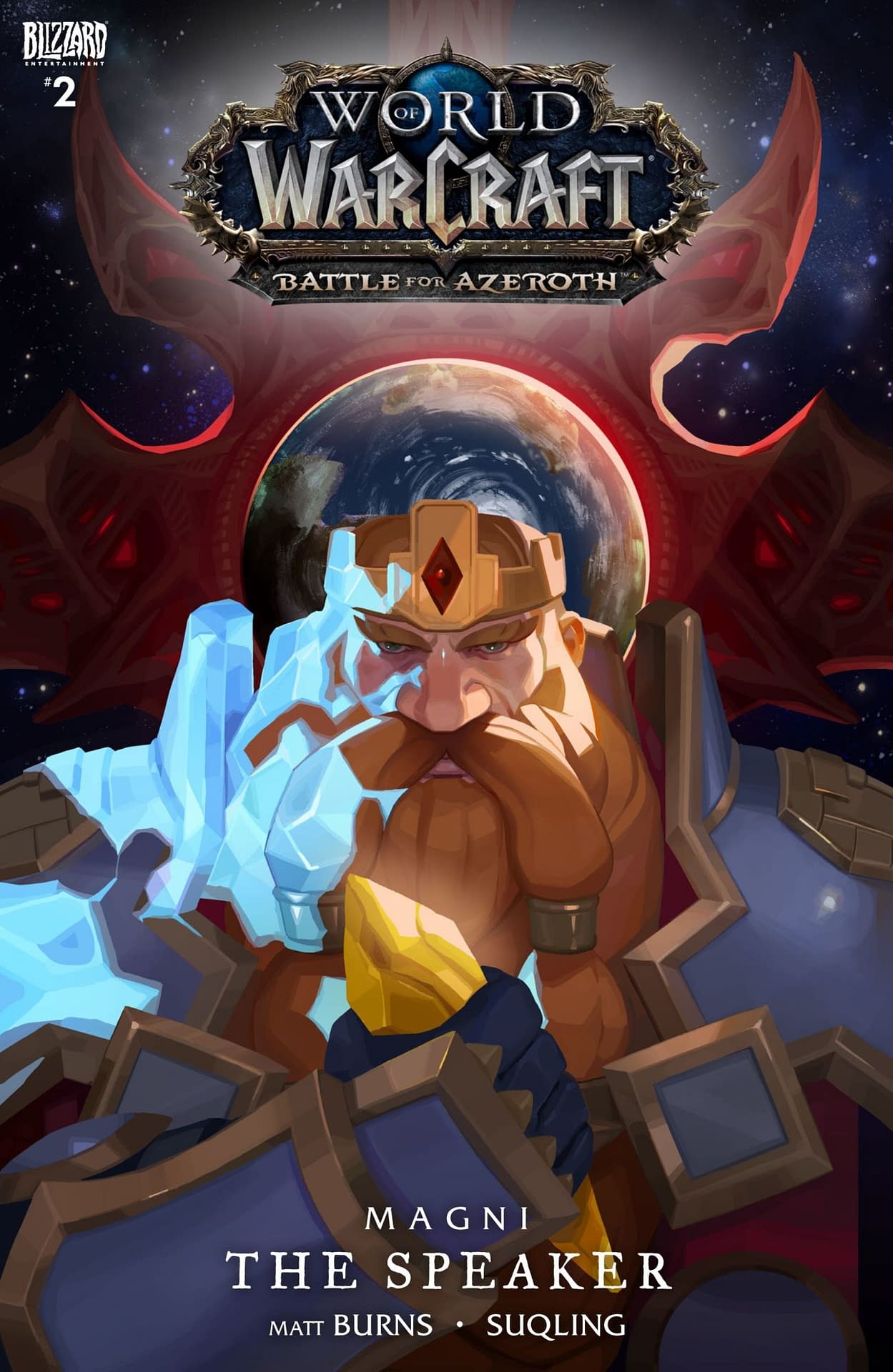
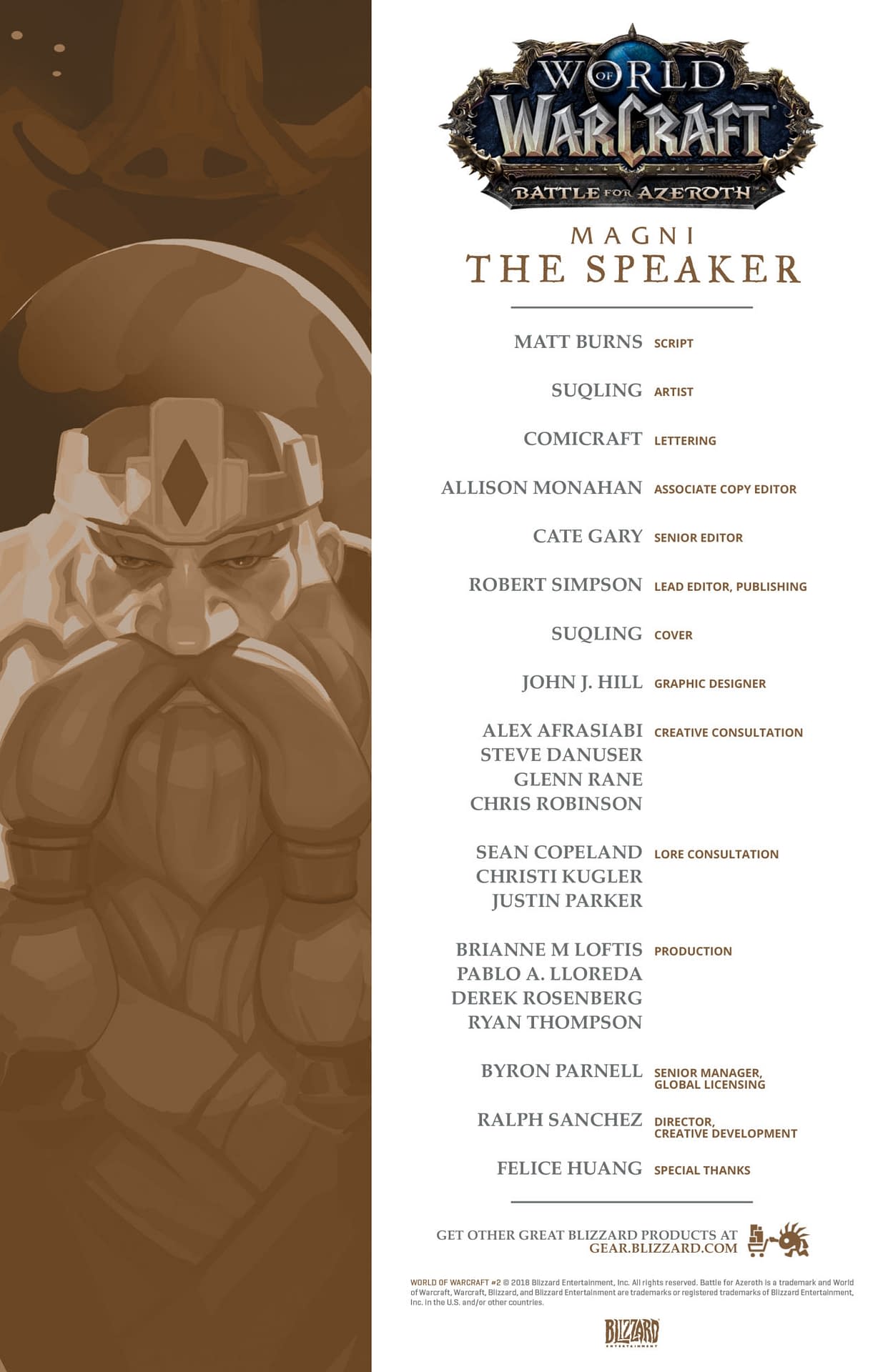
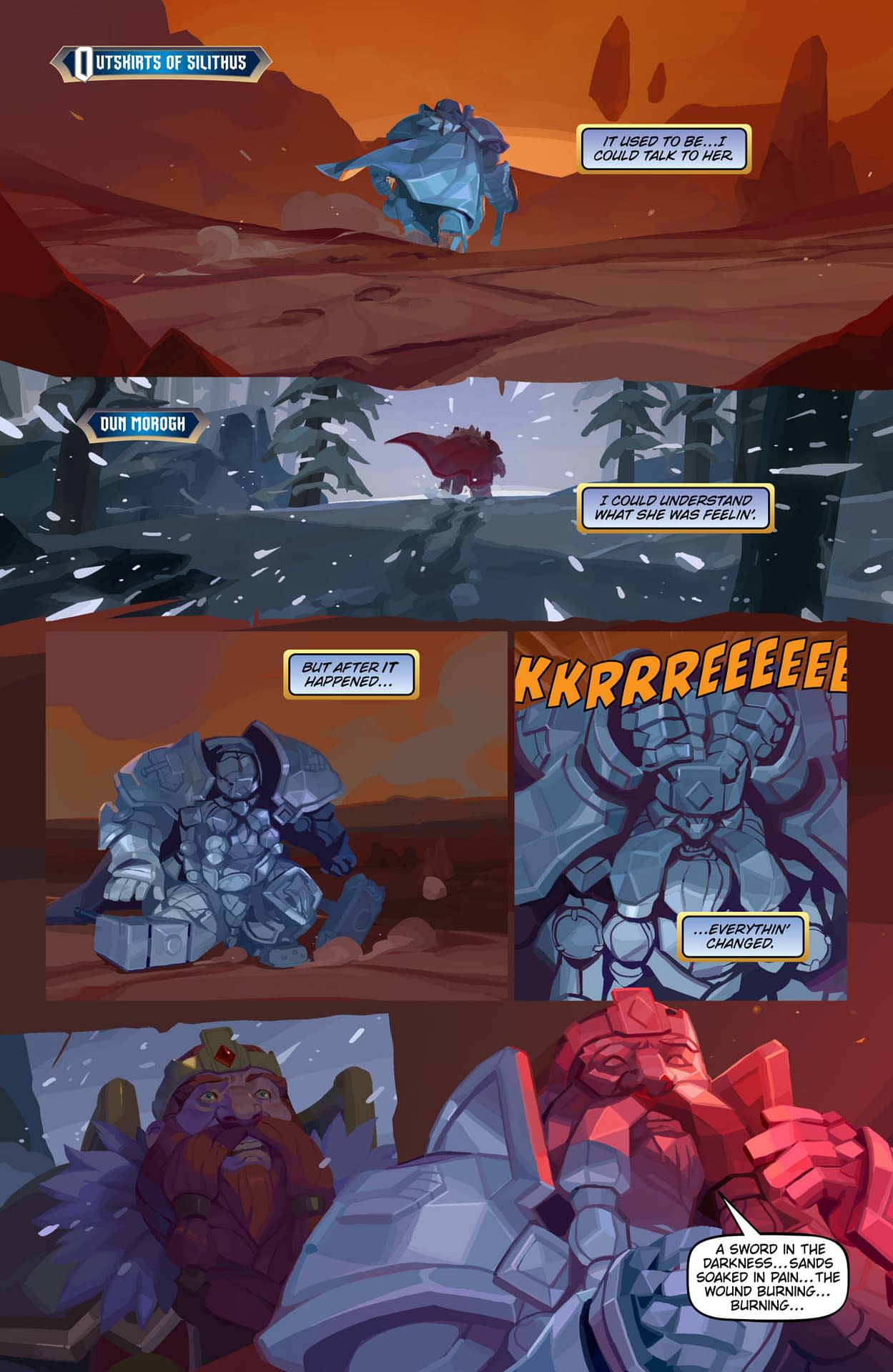
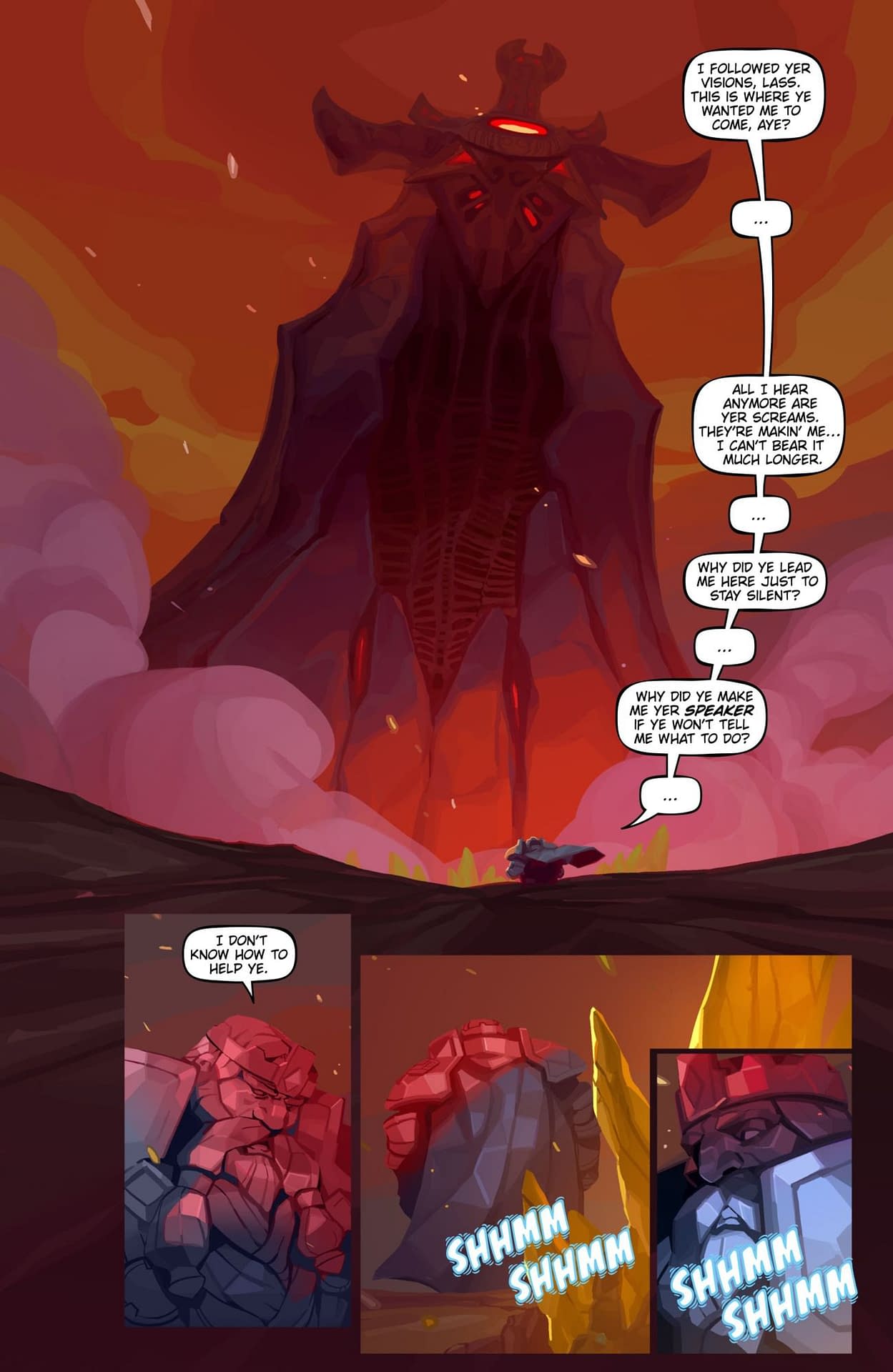


![[REVIEW] "Gang Beasts" is Zany Party Madness](https://mlpnk72yciwc.i.optimole.com/cqhiHLc.IIZS~2ef73/w:350/h:350/q:75/rt:fill/g:ce/https://bleedingcool.com/wp-content/uploads/2019/09/gang-beasts-7-350x350.jpg)
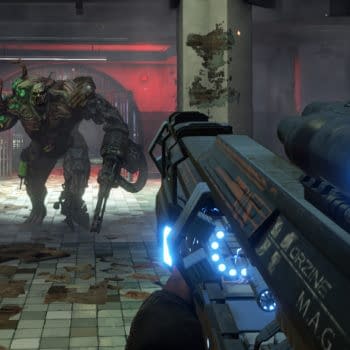
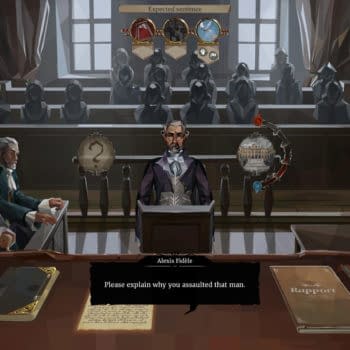
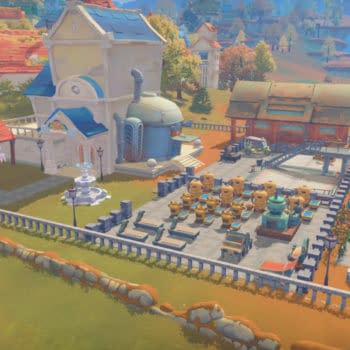
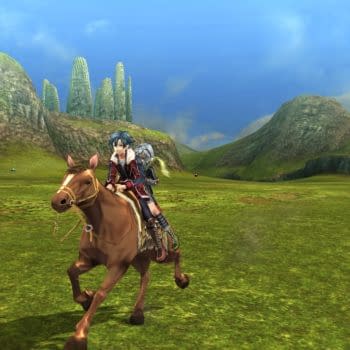
![[REVIEW] "Divinity: Original Sin II" Definitive Edition is Almost Perfect](https://mlpnk72yciwc.i.optimole.com/cqhiHLc.IIZS~2ef73/w:350/h:350/q:75/rt:fill/g:ce/https://bleedingcool.com/wp-content/uploads/2018/08/Divinity-Original-Sin-2-Definitive-Edition-art-350x350.jpg)
